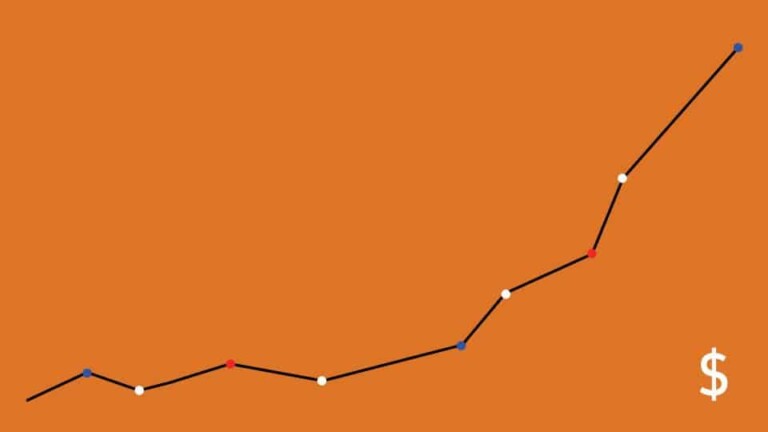Part one of a special two-part feature:
Q: After more than 3 years of leading a major chain of Hispanic newspapers, what are the main strategic lessons you have learned?
A: As I am no longer an officer in the company, let me speak for myself here. Rumbo's new weekly publishing schedule in Houston and San Antonio adopts the standard in the industry and builds on the success of our weekend editions and our own weekly in the Rio Grande Valley. As we continued to perfect our model, we discovered that we were ahead of our time in trying to roll out new daily and multi-day publications.
But I think there is a related strategic lesson that is more fundamental: The best way to be a major factor in the Hispanic newspaper market is to buy existing properties instead of launching from scratch. The benefit of a greenfield approach is that you don't inherit someone else's habits. You can achieve the editorial quality and operational efficiency you want more quickly. But on balance, there is an even bigger benefit in buying revenue stream and market share, and then off that base improve systems and quality.That, for example, has been the ImpreMedia strategy.
This more fundamental strategic issue does not concern itself with dailies or weeklies, but with whether or not you have an established brand and revenues in either frequency.
If you are going to launch new papers, weeklies are the way to go. The cost is much less, particularly given a second, fundamental lesson we always knew, but was repeated as we went along: the English metropolitan dailies do not easily allow you into their markets. We compete successfully against the Hispanic papers they launched to block us, but the added players, along with the existing independent Hispanic papers, has divided a print advertising market that, while growing, is not growing as fast as it should.
And “should” is the operative word here.It is at the heart of lesson number three: you can't change the internal dynamics and buys of the advertising industry as fast as you would like, even if you think reason is on your side.
Q: What would you consider the biggest failure for Rumbo so far?
A: I wouldn't call it a failure, but rather an obstacle that has not been overcome as fast as we would have liked, and one that we are overcoming. I speak here of the ramp in ad sales. Sales grew 40% last year, a growth rate few newspapers can claim in any language. But we wanted even more than that to be able to sustain the build-up costs of a multi-day publication. Added to the advertising challenge has been that in our search to reach what is now the right balance between short term costs and ad ramp, each change required re-education of advertisers and a re-winning of their confidence.
Separately,I sometimes wish we would have moved to free distribution earlier, or perhaps even from the beginning. We said publicly when we launched that we were agnostic in the free versus paid debate and would go free if we had to. But advertisers then were still insisting they valued a paid publication more than a free one.
As a new publication, we especially needed the legitimacy that was offered by being paid. But our pick-up rate from street racks increased 10 times in a matter of weeks after we went free a year ago.
There is a separate failure that has been more personal, and more emotional for me. At each step in adjusting our model, we have had to lay offtalented colleagues.
They came to Rumbo, often from Mexico and other countries, because they believed in me and our management team and believed – still believe – in what we have been building in terms of quality, relevance and efficiency.
Over three intense years of working together, I came to admire all of
them, and became personal friends with many. With a weekly model, we don't need a large management team to accomplish the same ends.
It was for me an honor and a moral relief to join those friends and lay off myself.
Q: What would you consider the biggest success for Rumbo so far?
A: Perhaps the most important success achieved by that team is Rumbo's very strong readership. Among the readership confirmations are Scarborough and Media Audit despite the flaws in their methodology that undercounts Spanish-speaking readers of independent papers. We conquered our target audience of first generation, Spanish dominant head of young households and aspirational adults. Our readership, even when we were daily, put the lie to the myth that Hispanics don't read, and to the insult that they don't appreciate quality.
Rumbo's readership confirms that we were right about our formula of useful, relevant, lively and fun content, well-edited and packaged with first rate graphics.We also won over our peers.
Rumbo won more Texas AP Managing Editor Awards last year than even the English language papers in our mid-sized class, and one of our dailies was named one of the nation's three best newspapers by the National Association of Hispanic Publishers. It was our Austin daily, but it could have been any of them, as they share more than two-thirds of their content. We just submitted an Austin paper by chance. The editorial quality and formula remain unchanged in the weeklies.
Finally, we built extremely reliable, audited distribution and high impact marketing, mostly by employing non-newspaper people with backgrounds in face-to-face marketing and logistics. In this we were helped by Estrategia Hispana, a Miami-based street marketing firm, and by L Avenue, a San Antonio ad agency.
The short of it is this: In three years, we built a very strong brand.
Part 2 of 2 on Rumbo's future and legacy to be featured in next week's newsletter.
Related Article: Stakeholder Rustic Canyon Assesses Rumbo´s Future Strategy







